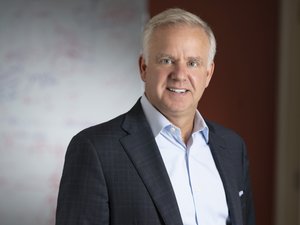
I've been reading Future Shock (1970), by Alvin Toffler, again. It's one of those breathless, dated books that help me understand how we got into the mess we're in. Sort of like reading The Lexus and the Olive Tree in 2008.
Anyway, in Chapter 3, Toffler discusses the "people of the future"--some 2 or 3 percent of the world population, concentrated in California and Cambridge, Mass., "the earliest citizens of the world-wide super-industrial society." Unlike "people of the past" and "people of the present," the people of the future "'live faster' than the people around them," Toffler writes.
Like good software, our lifetime user experience can be frictionless.
The "live faster" credo has brought us a lot. It's brought the four-hour work week, life hacks to train ourselves to need less sleep and day-long, constant communication with our colleagues. Like good software, our lifetime user experience can be "frictionless."
But should it? Looking around at the end of 2016 I see the absence of friction destroying value and making us miserable. Here are 4 things entrepreneurs and investors can do in 2017 to reverse that process.
1. More email, less Facebook, please
Email is the worst. The inbox is crowded with spam and unwanted messages. Facebook, by contrast, promises to show me only what I want to see. It's very good at this. Unfortunately it's not very good at filtering out "fake news," and whatever role that may have played in the 2016 presidential election, it's certain that one half of the country had no idea what the other half was thinking, leading up to election day.
Email, by contrast, has the potential for human control at both ends. We send you a newsletter every day (The DC Inno Beat, sign up here) that represents our decisions on what's important today. There's a tremendous amount of friction involved in getting these into to your cluttered inbox, where you choose whether to open it or skip it (friction) and maybe forward it to a friend (friction).
In 2020's election, I hope a lot more of us will be basing our voting-booth decisions on information conveyed in this way, from sources we trust.
2. Simpler mobile phones, please
Two dear friends of mine got married in London at the beginning of the month (weddings = friction). While we were sitting outside on a patio at The Crown, a pub in Bow, my huge smartphone fell out of my back pocket onto the tiles, shattering. It's the third time that's happened in two years.
When I got back to Boston Sunday night I found myself re-packing for a 7am Monday flight to Austin, a business trip I'd also booked. (It seemed like a good idea at the time.) Not wanting to go phoneless, I grabbed an old iPhone 4 (2010) that we'd kept around for the kids to use. A short time later I was back online, with a phone that isn't really good for much besides SMS and email.
It's great.
Friends of mine recently published a post comparing smartphone design to vending machine design. The resemblance is more than just design. You can imagine how getting up to "check the vending machine" for new delights might become an unhealthy habit.
Now, I no longer feel an impulse to just "check my phone." (Nothing to check.) A small Android tablet handles most of the apps I really need. The lesson for me is pretty clear: Frictionless access to the app store isn't improving my life or my work.
3. More consideration for human beings, please
One of the drawbacks of my new (to me) iPhone 4 is its inability to handle the Lyft app. (I am running iOS 5, because I am scared to download 7.) Uber, however, has made older versions of its app available, so I can run it.
This is a problem, because Uber doesn't let me tip and, as I've pointed out before, not tipping your driver marks you a rube. At some point, Uber told us tipping wasn't necessary and we were all like, "Oh, OK." Now, I make a point of carrying cash (friction), which I can still use at most places, other than Sweetgreen.
Taking other people into consideration is rarely a frictionless experience.
VCs, you may think tipping is dumb, even socially destructive. Please, come up with an alternative before you cut out your side of the social contract. Otherwise, you're like those voters in San Francisco, who said, yes, cops, sweep the homeless off our streets and sure, build them shelters or whatever, but don't ask us to pay for it.
Unfortunately, taking other people into consideration is rarely a frictionless experience--or I think we'd see Silicon Valley tech bros doing a lot more of it.
4. Nothing on-demand, please
Really, I think investors should give this idea up in shame. Somehow, you thought not having to think about food or clean clothes was one of the things that made you one of Toffler's "people of the future." Nothing captured this frictionless "live faster" mindset better than Washio, the on-demand laundry service that died this year.
Food on demand businesses are worse. There are a few, like GrubHub, that have built a solid business making it easier to order takeout. The rest, like Blue Apron (delayed IPO) and Maple (setting fire to cash), are encountering the business friction that comes with very slim margins.
There's no time like the holidays to think about the peaceful, wonderful friction that comes from cooking for someone you love. If you've been caught up in the slide toward a frictionless life, here's a quick recipe you can use to bring a little cheerful friction back into your life, right now:
- Beat some egg whites
- Beat some egg yolks with sugar
- Mix it with rum and brandy
- Pour it into a pitcher of homemade egg nog and grate a little nutmeg on top
- Sit back and reflect on all the good things friction brought you in 2016.




